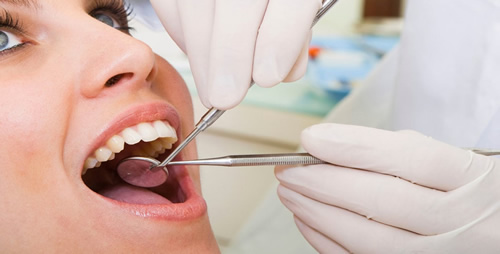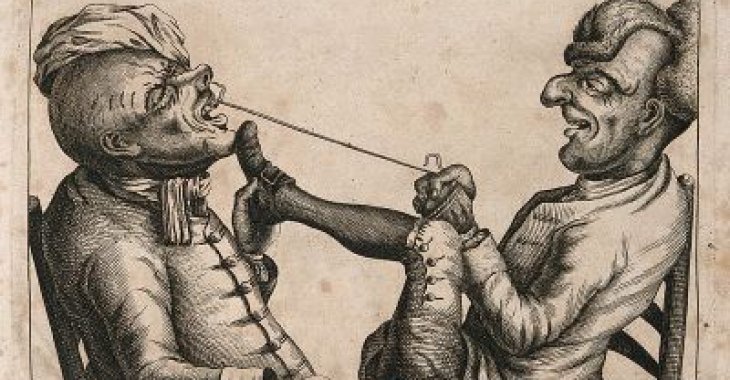WHY ARE TEETH EXTRACTED?
While many people of all ages get their wisdom teeth taken out, there are other situations where tooth extraction may be necessary.
Excessive tooth decay, tooth infection, and crowding can all require a tooth extraction.
People wanting to get braces may need one or two teeth removed to provide room for their other teeth as they shift into place.
Additionally, certain medical conditions and those undergoing certain treatments require compromised teeth to be removed in order to keep their mouth healthy.
Tooth extraction is performed by a dentist or oral surgeon and is a relatively quick procedure with either local, general, intravenous anesthesia, or a combination.
Removing visible teeth is usually a simple extraction. Teeth that are broken, below the surface, or impacted require a more involved procedure.
What Is The Procedure?
Your tooth extraction will either be simple or surgical, depending on whether your tooth is visible or impacted/below the gum.
Simple extraction:
You will receive a local anesthetic, which numbs the area around your tooth so you’ll feel only pressure, not pain, during the procedure. The dentist then uses their instruments to loosen and remove the tooth.
Surgical extraction:
Surgical extractions can be done under local anesthetic, however depending on the tooth and the individual, sometimes intravenous anesthesia or general anesthesia is the best option. At Team Dental we extract under local, if a particular treatment looks to be complex, we will refer to our local maxilla and facial surgeon where further choice of anesthetic is available under specialist expertise.
Once you are nice and numb, the general dentist or oral surgeon will cut into your gum with a small incision. They may need to remove bone around your tooth or cut your tooth before it can be extracted.
What Are The Risks Of A Tooth Extraction?
There are a few risks for undergoing a tooth extraction; however, if your dentist recommends the procedure, the benefits likely outweigh the small chance of complications.
Usually after a tooth extraction, a blood clot naturally forms in the socket where the tooth has been extracted.
However, if the blood clot does not form or dislodges, the bone inside the socket can be exposed. This is referred to as “dry socket” and can be painful. If this happens, the dentist will protect the area by putting a dressing over it for a few days. During this time, a new clot will form.

Other Risks Include:
- Swelling and stiffness in the jaw- usually lasting about a week
- Bleeding- usually easily controlled and rarely requiring medical attention
- Pain and discomfort- usually well controlled by prescribed pain killers
- Infection- uncommon, particularly if good oral hygiene is maintained after surgery
- Damage to adjacent teeth and fractures of the mandible- these are very rare complications
- Numbness tingling and altered sensation of the lip, chin, tongue, gums and back teeth- this is due to the proximity of two nerves which supply these areas, to lower wisdom teeth. If this takes place, it can last for months and very rarely be permanent.
- Sinus perforation, communication or root displacement- can take place where an upper back tooth root which protrudes into the maxillary sinus is removed. A second procedure may be required to manage such problems.
- Allergy or other adverse reaction to drugs which are administered- such as anaesthetics and sedatives
- Root fragments left behind- there is a possibility of root pieces being left in-situ. It will usually heal very well and you shouldn’t have any complications
- Specialist referral will be needed (at an added cost) in case of any complications during or after surgery
How You Can Prepare?
Before scheduling the procedure, your dentist will take an X-ray of your tooth. Be sure to tell your dentist about any medications you take, as well as vitamins, supplements, and over-the-counter drugs.
Also, tell your dentist about any of the following conditions:
- A congenital heart defect
- Diabetes
- Liver disease
- Thyroid disease
- Renal disease
- Hypertension
- An artificial joint
- Damaged heart valves
- Adrenal disease
- An impaired immune system
- A history of bacterial endocarditis
Your dentist may want to make sure all conditions are stable or treated before you undergo the tooth extraction. You might be prescribed antibiotics in the days leading up to the procedure if:
- Your surgery is expected to be long
- You have an infection or a weakened immune system
- You have a specific medical condition
What Is The Recovery Period From A Tooth Extraction?
It normally takes a few days to recover after a tooth extraction. The following steps help ensure that your recovery goes smoothly.
- Apply an ice pack to your cheek directly after the procedure to reduce swelling.
- After the dentist places the gauze pad over the affected area, bite down to reduce bleeding and to aid in clot formation. Leave the gauze on until the bleeding stops
- Take any medications as prescribed, including over-the-counter painkillers..
- Rest and relax for the first 24 hours. Do not jump immediately into your regular routine the following day.
- Don’t use a straw for the first 24 hours.
- Don’t smoke.
- Don’t rinse for 24 hours after the tooth extraction, and spit gently if you must.
- Use pillows to prop your head up when you lie down.
- Brush and floss your teeth like normal, but avoid the extraction site.
- The day after the procedure, eat soft foods.
- After 24 hours, rinse out your mouth with warm salty water.
- As you heal over the next few days, you can slowly reintroduce other foods into your diet.
If you are experiencing pain that isn’t going away after several days or signs of an infection, including fever, pain, and pus or drainage from the incision, make an appointment to see your dentist as soon as possible.
Overall:
If you think you need a tooth extracted:
- Call your nearest Team Dental practice on 0508 TEAM DENTAL
- Book an appointment to discuss your options with the dentist and get X-rays of the tooth
- If all goes well, we may take the tooth out on the day or get you to come back another day for the extraction.
- If it looks surgical, we may refer you to our local maxilla & facial surgeon.
- We do our best to make the process as easy and painless as possible!
